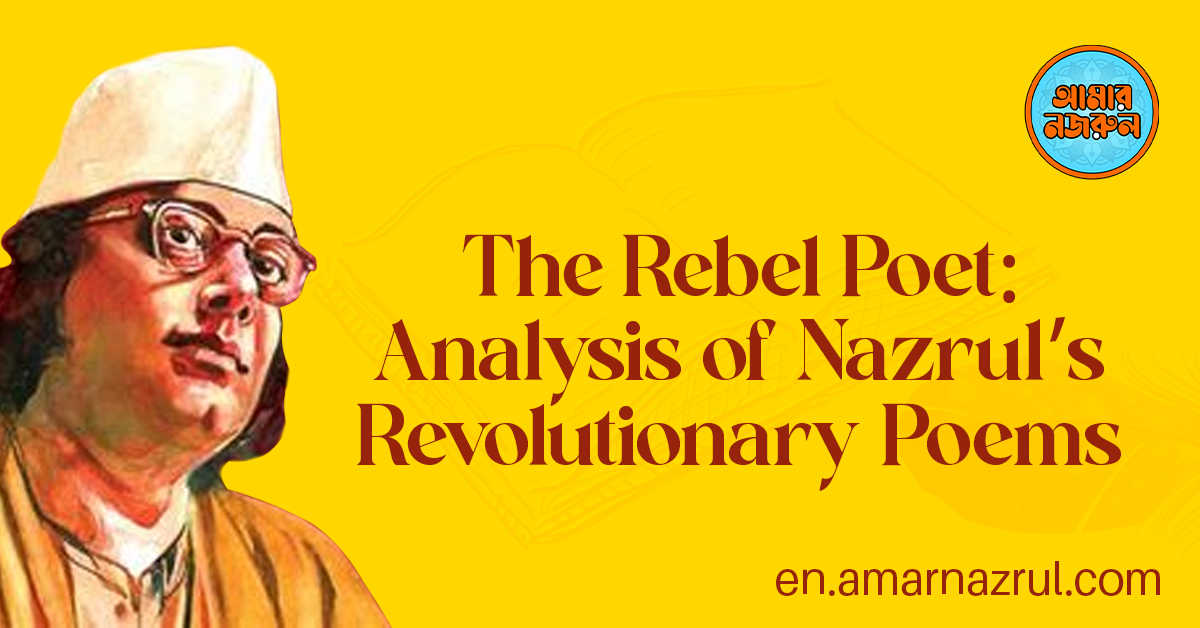Kazi Nazrul Islam, often referred to as the “Rebel Poet,” was a prolific Bengali poet, musician, and revolutionary figure during the early 20th century. His poetic works exude a spirit of defiance, challenging social norms, oppressive regimes, and advocating for justice and equality. Nazrul’s revolutionary poems are a testament to his courage and his ability to use the power of words to inspire change. In this article, we delve into the world of Nazrul’s revolutionary poems, exploring their themes, impact, and enduring relevance.
Early Life and Influence
Born in 1899 in rural Bengal, Nazrul’s early life was marked by poverty and hardship. His exposure to the struggles of the working class and marginalized communities deeply influenced his perspective and the themes he would later explore in his poetry. At a young age, he joined the British Indian Army but was soon discharged due to his involvement in protests against British rule. This marked the beginning of his journey as a poet and revolutionary.
Themes in Nazrul’s Revolutionary Poems
- Anti-Colonialism and Nationalism: Nazrul’s poems fiercely oppose British colonial rule and champion the cause of national freedom. He used vivid metaphors and impassioned language to convey the collective longing for independence and the rejection of colonial oppression.
- Social Justice: His poems were also a platform for highlighting social injustices. He addressed issues such as poverty, inequality, and discrimination, emphasizing the need for a just and equitable society.
- Religious Harmony: Nazrul’s poems often transcend religious boundaries, promoting the unity of all religions. His verses celebrate the common humanity that binds people together, regardless of their faith.
- Women’s Empowerment: In a society where women’s voices were often suppressed, Nazrul’s poems advocated for gender equality and the empowerment of women. His poetry encouraged women to break free from societal constraints and assert their rights.
- Anti-Fascism and Anti-Totalitarianism: Nazrul was vocal against emerging fascist ideologies and totalitarian regimes. His poems exposed the dangers of authoritarianism and called for resistance against oppressive rulers.
Impact and Legacy
- Inspiring the Masses: Nazrul’s poems had an immediate and profound impact on the people of Bengal. His words resonated with the common folk, invigorating them with a renewed sense of purpose and determination.
- Mobilizing Movements: His revolutionary poetry played a pivotal role in galvanizing various movements, from the Indian independence struggle to labor unions and social reform initiatives. His compositions were recited and sung at rallies, marches, and protests.
- Cultural Identity: Nazrul’s poetry became an essential part of Bengali cultural identity. He celebrated the beauty of the language and integrated elements of folklore, music, and history into his works.
- Literary Innovation: Nazrul’s poetic style was characterized by a unique blend of traditional forms and modern techniques. He experimented with rhyme, rhythm, and imagery, creating a distinct voice that set him apart from his contemporaries.
- Global Recognition: Nazrul’s impact extended beyond Bengal. His revolutionary themes and universal messages found resonance in various parts of the world, earning him admiration from international literary circles.
Relevance in the Modern World
Nazrul’s revolutionary poems continue to hold relevance in the modern world, transcending time and place. The themes he addressed – freedom, justice, equality, and resistance – remain pressing issues in contemporary societies. His call for unity, his emphasis on social justice, and his rejection of extremism are values that can guide us in navigating complex global challenges.
Conclusion
Kazi Nazrul Islam’s revolutionary poems are a powerful testament to the enduring power of words in the pursuit of justice and change. His life story, his unwavering commitment to challenging oppression, and his ability to capture the essence of human struggles make him a literary icon. As we reflect on his contributions, we are reminded that poetry has the potential to spark revolutions, ignite passions, and shape the course of history. The Rebel Poet’s legacy lives on, inspiring generations to come to stand up against injustice and fight for a better world.
